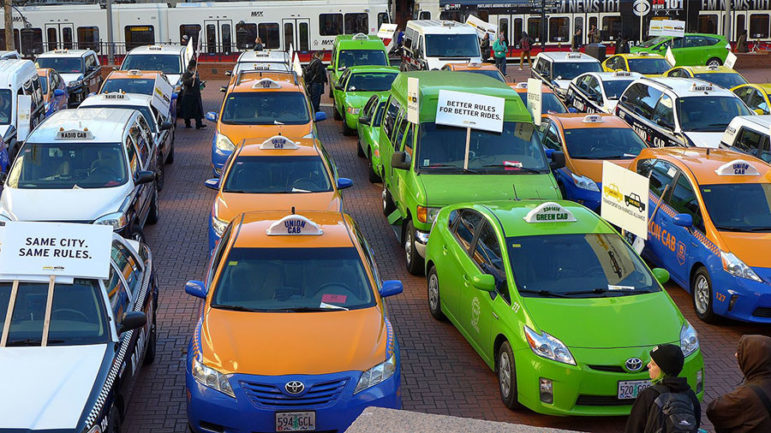
The economy is being reorganized by new platform owners who are gaining influence and introducing new risks in ways that are more formidable and are causing change at a more ferocious pace than the factory owners of the industrial revolution. Big data, ever-new algorithms, and cloud computing may be changing the nature of work, but civil society can still have a say in how that change will be determined.
In addition to street protests to confront the likes of Uber and Airbnb “circumventing market regulations in many markets in areas including tax and labor law,” this article asserts that cooperatives, mutual organizations, and new platforms that offer workers equity or customers a “purpose” are increasingly effective in making the economy more equitable.
One example is Canadian firm Stocksy, which brings together more than 900 photographers and redistributes 90 percent of profits to the artists. Loconomics adopts a similar approach. It is a cooperative owned by service professionals from massage therapists to dog walkers that operates with a strict principle of one member, one vote.
Proponents of the “new economy” call it the Creative Economy or the Sharing Economy, while those expressing concern call it the Gig Economy or the 1099 Economy. In truth, Uber and Airbnb are not based on “sharing”; each in its own way monetizes human effort and consumer assets for the benefit of its owners. They differ strongly from the communal construction of knowledge by Wikipedia or the open source software initiatives, such as Linux and Apache, from which the “sharing economy” drew its name.
In the early years of the Industrial Revolution, government and business owners assumed the marketplace would self-correct the societal ills it abetted, such as poor product quality and child labor. Government intervention typically supported the owners in the name of public safety and order. Decades later, after much human suffering and worker organizing, hard-fought reforms were won.
Sign up for our free newsletters
Subscribe to NPQ's newsletters to have our top stories delivered directly to your inbox.
By signing up, you agree to our privacy policy and terms of use, and to receive messages from NPQ and our partners.
The new digital platforms, however, are far more diverse in scope, function, and structure than Industrial Revolution factories. Google and Facebook may be primarily known for their digital platforms that offer search and social media, but they also provide the infrastructure for countless others to build their businesses. Amazon, Etsy, and eBay are ubiquitous and efficient marketplaces, but Amazon Web Services provides essential tools for countless others to build their enterprises. Airbnb and Uber are forcing deep changes faster than new laws can be legislated to protect a variety of incumbent businesses, but they are also causing the reorganization of markets, work arrangements, and value creation. This “new economy” is accelerating faster than reforms can correct it. It is up to civil society to do what it can as fast as it can to confront these rising inequities.
For instance, Fairmondo aims to change e-commerce by creating a global online marketplace based on a federation of national cooperatives. Scaling such models in order to compete globally is of course a challenge.
Cooperatives are also emerging as popular organizational structures for social entrepreneurs. For example, Hepburn Wind Farm is a locally owned co-operative in Daylesford, [Victoria, Australia] that owns and operates two wind turbines. These provide enough clean energy for more than 2,000 homes in the community. There are about 2,000 mutual businesses and co-operatives in Australia. The top 100 of these businesses represented a turnover of AU$28 billion in 2013–14, growing at a yearly rate of 14 percent. This demonstrates the sustainability of such models.
Juno is a new startup ridesharing company that plans to compete with Uber by offerings its drivers fifty percent of the equity and keeping 10 percent of each ride, compared to Uber’s 20 percent to 25 percent.
Other examples of the true “sharing economy” abound. The sharing economy in general, and specific solutions such as cooperatives in particular, are frequent subjects discussed in NPQ’s nonprofit newswire. The force of civil society taken together, including nonprofit organizations, membership organizations, crowdfunding, impact investing, and social entrepreneurship, may offer a meaningful countervailing force to the rise of monopolistic corporations.—James Schaffer











